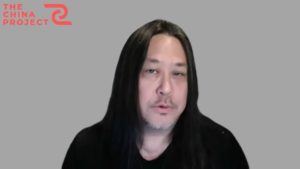Much has been written and talked about the Mandian report, pinpointing at a
PLA-unit in Shanghai as the culprit for hacking in the US, since we announced our
China Weekly Hangout last week. (
You can read the original announcement here,
you can register here). On top of that, we got an unprecedented number of people (30 at the time of writing this post) who already registered for participation this week. So, time for a wrap up.
Who is holding the smoking gun, is the title of this week's hangout. But after reading all the additional articles, we can better ask who is not holding a gun, smoking or not? If we can believe the information in different articles, the APT1 or P.L.A. Unit 61398 in Shanghai is only one out of twenty China-based hacker groups.
And apart from China, similar hacker groups are believed to operate (condoned or not by their governments) in Russia, the US itself, France, Israel, Iran and possibly a few other countries.
That raises new questions. Why has this report developed into an exclusively China-US argument, leaving out other countries and other China-based hacker groups? Was the PLA unit so poorly organized, their
IP addresses could be discovered?
Also the motives of Mandian came under scrutiny. Were they heading for an IPO and needed so media attention? Or are the media to blame, who just need a simple "bad guy/good guy" story and have used the Shanghai-based PLA unit for a too simplistic take on what hacking actually means for global security?
And indeed: when everybody is shooting at everybody, how can you protect yourself, as an individual, but also as a company, organization or government agency?
On Thursday we try to dive into a few of these questions with
+Charlie Custer of
Tech in Asia; while moderation will be in the hands of
+Fons Tuinstra, president of the
China Speakers Bureau. We can only allow a few people into the official hangout, and if you give us a short bio and your take on this issue, you have a larger chance of getting into the hangout.
Everybody else can watch the hangout here in this space, or at our event page. Questions and remarks you can also send during the hangout over twitter and Google+, but make sure you add our hash tag #CWHCWH.
You can view all previous hangouts here.
Until then, you can also leave your remarks here in the comments.
Some additional useful articles:
Mandiant goes viral after China hacking report -Reuters
Hackers Embed Virus in Mandiant Report - CDT
Everyone Hacks Everyone: Stop Assuming All Hackers Come From China - TIA
Next week we plan to have a China Weekly Hangout on China's relations with Africa, especially the position of China's media in the continent. Participating will be
+Eric Olander of the
China Africa Project. The announcement for the hangout will follow later, but if you are interested,
drop me a line.
